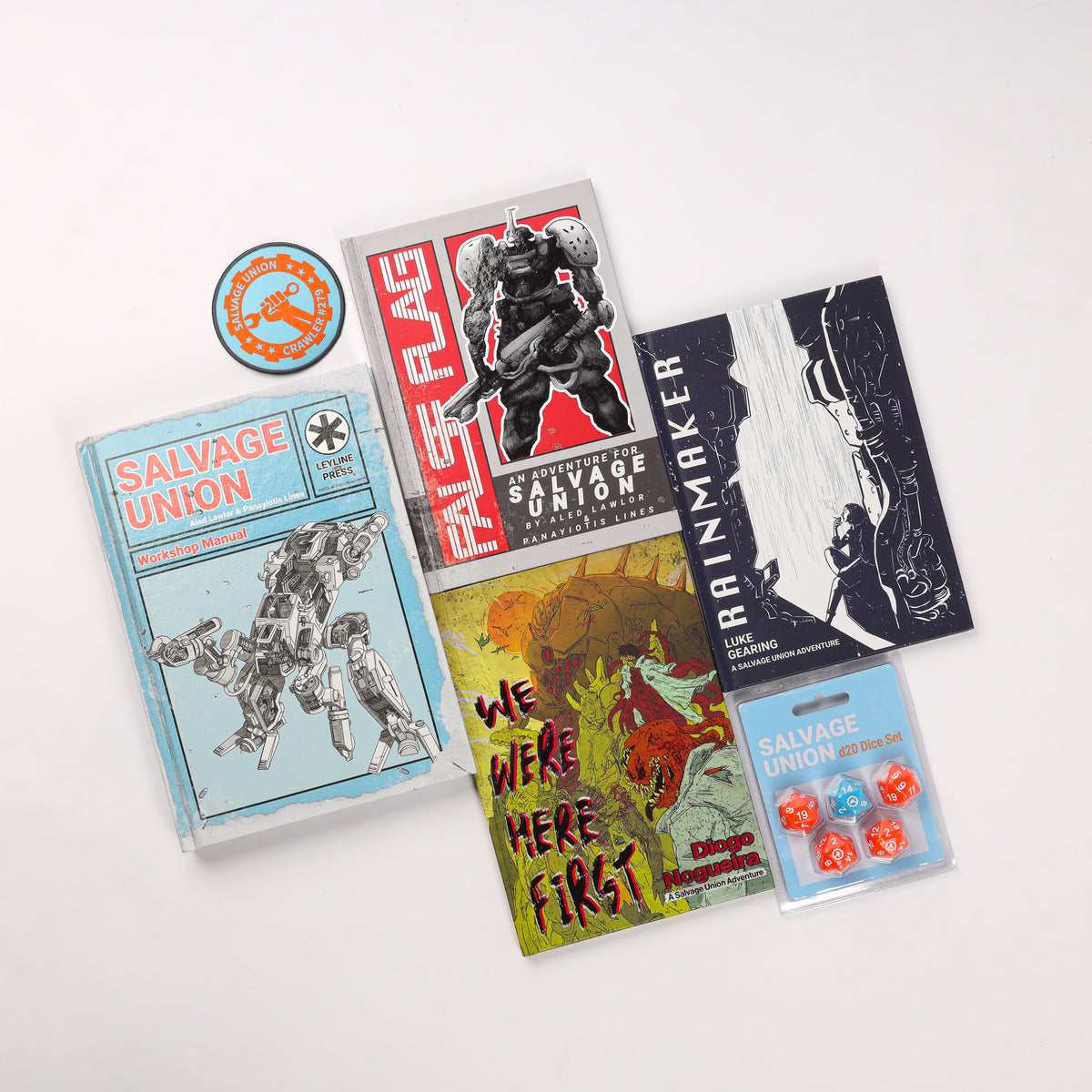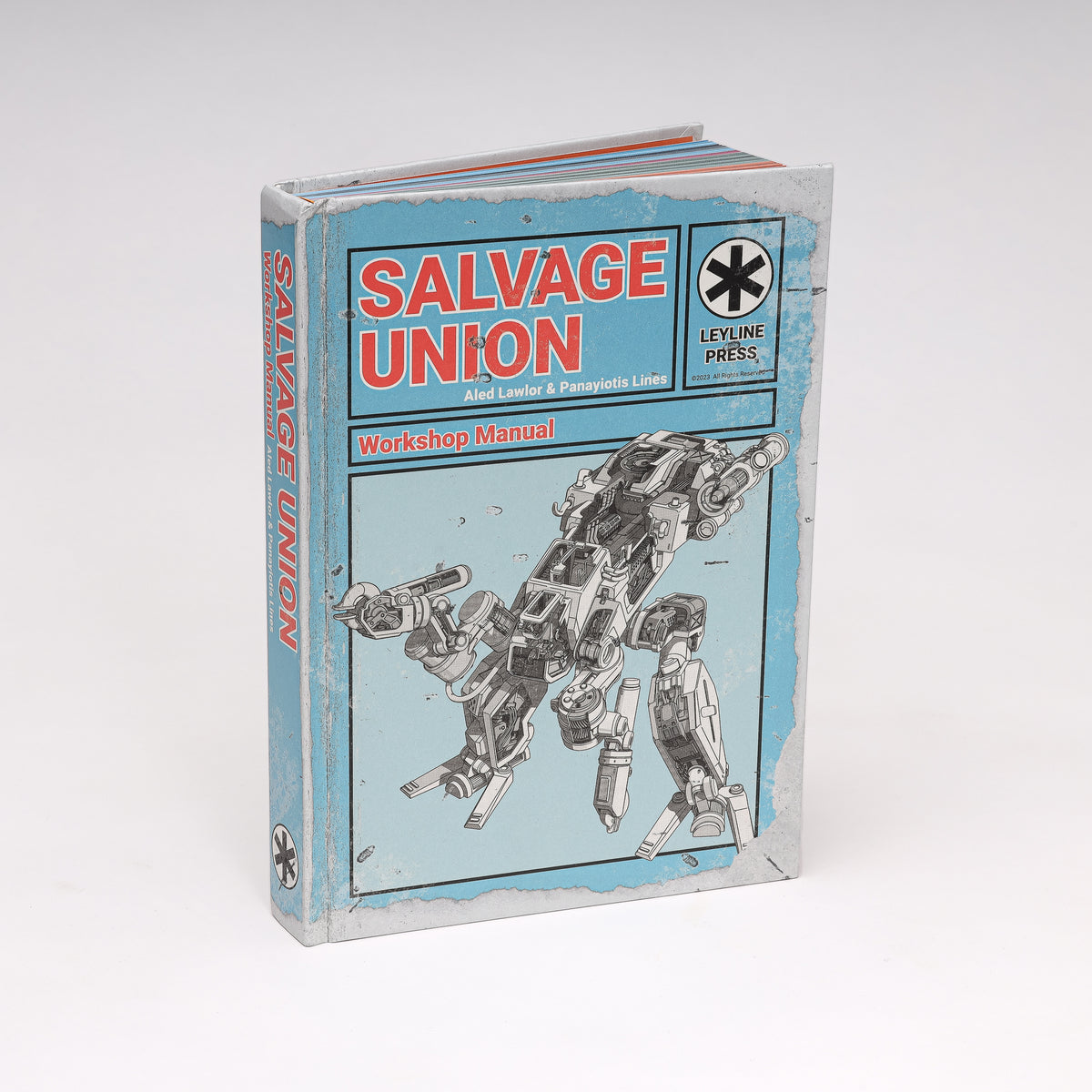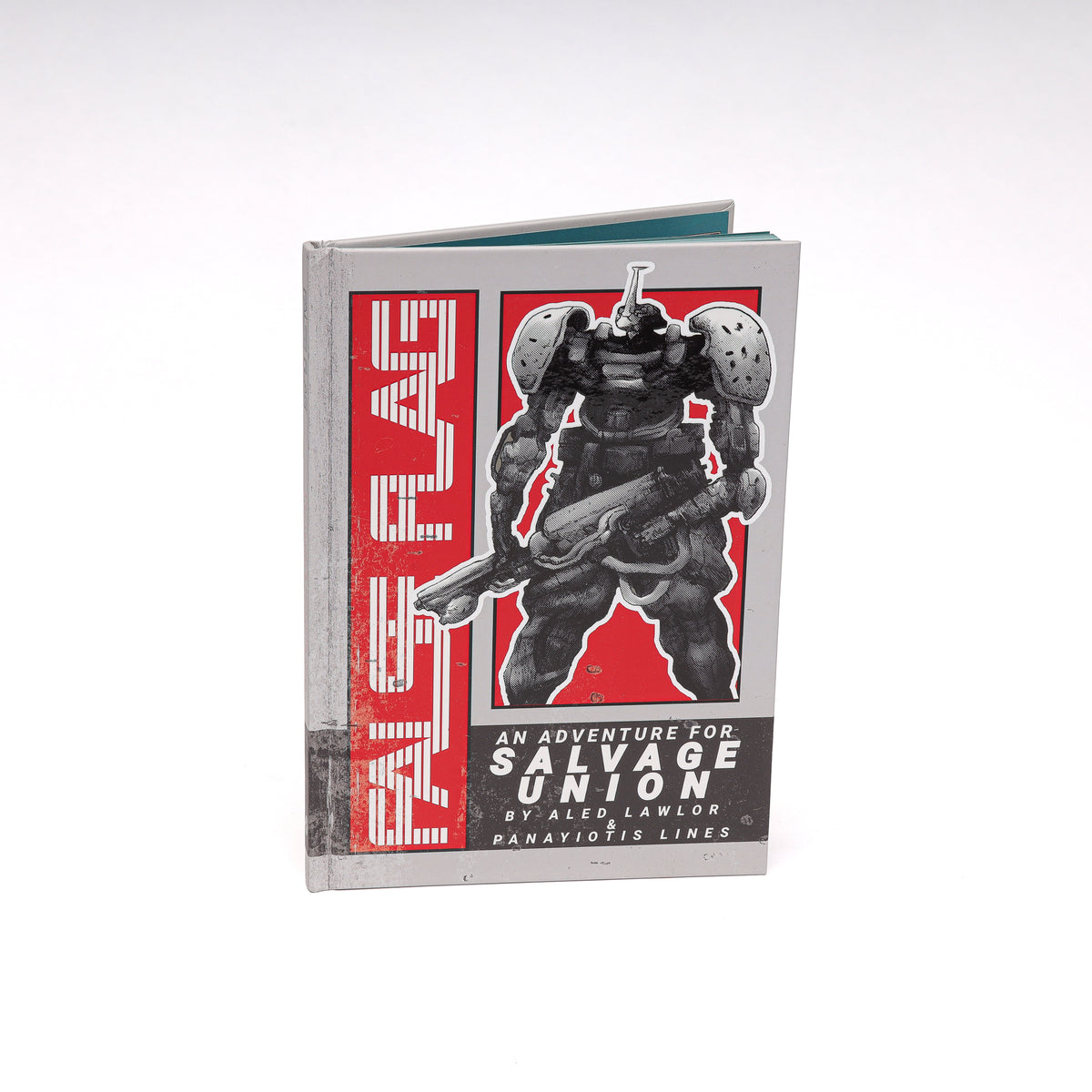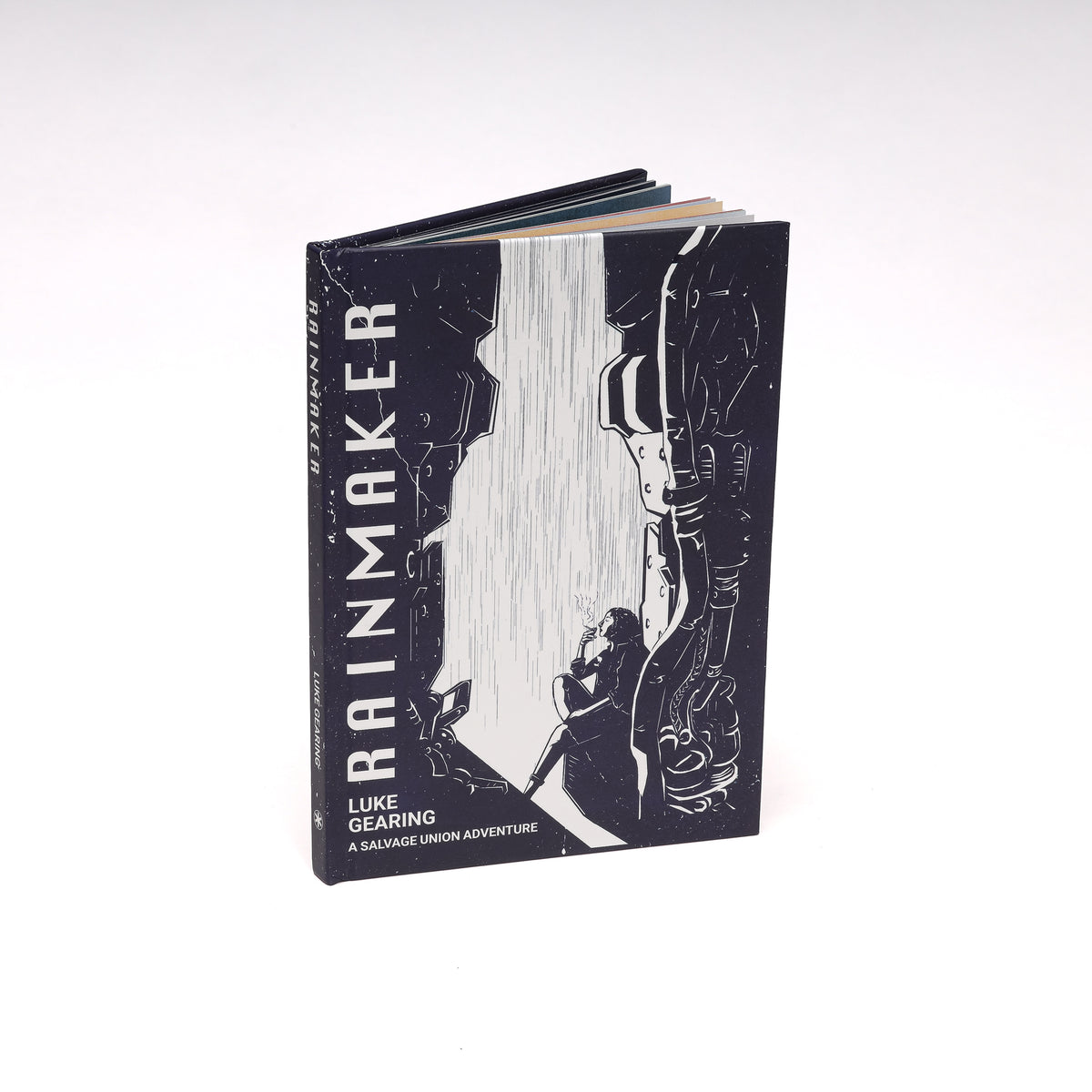This is a series of blogs that will explore the various 'OSR' table top roleplaying games. You can read the previous blog on Old School Essentials here and you can read about some key principles of old school games that bind these titles together here.
This week we're looking at Mothership a Sci-Fi Horror RPG by Tuesday Knight Games.
Within Mothership you play as members of a spaceship crew attempting to survive in inhospitable environments crawling with alien monstrosities. Characters further have to contend with other humans twisted by their environment and situations into deadly threats. All this whilst managing their their own internal stress as the increasing weight of their horrifying predicament drives them to panic.
On the surface Mothership with it's science fiction genre and horror theme seems far removed from the traditional fantasy genre inherent in a lot of OSR games that derive from Dungeons and Dragons. However it follows many of the key principles present in OSR titles and many of these principles are well suited towards the science fiction horror genre.

Take for example the high lethality and chance of character death present in a Basic & Expert D&D (B/X) of which OSR titles like Old School Essentials derive. Mothership follows suit, characters you play, with the exception of Androids, are human with all the fragility of playing a mortal. Even Androids, though somewhat more resilient, are not indestructible terminator robots and can die as fleshy mortals to the perils within the game. Mothership characters have to contend with a range terrifying and deadly threats from the scythes of alien monstrosities, to the callous thuds of machine gun bullets, to the cold, dark void of space.
The core of the Mothership system uses a d100 roll under mechanic with a set of four stats, strength, speed, intellect and combat. Each of these stats are randomly rolled at character creation using 6d10 and for the most part are relatively low with characters averaging out at a 33%. Skills and class abilities can boost these and the game applies the principle of only rolling when relevant but for the most part success is certainly not guaranteed.

Players then choose from a small list of classes which include Teamster, Android, Scientist and Marine. The Teamster is a versatile crew member who echoes characters like Ellen Ripley in Alien, the Android as the name implies is a sentient robot able to resist fear effects well but prone to malfunction, the Scientist offers a wide range of knowledge based skills and abilities but is fragile and the Marine is the strong, tough fighting type, able to use weapons like Pulse Rifles most effectively. This mirrors in its own way the 'classic' 4 D&D classes - The Thief, Cleric, Magic User and Fighter.
This contrast of high lethality and randomised low power level are key elements of OSR titles. This works succinctly within the horror genre where placing characters into life or death situation and forcing them to use their wits to survive a series of overwhelming physical and environmental threats. This is only possible through the other key OSR principle that Mothership emphasises which is player agency.

Mothership games are typically intended to be run as open 'sandbox' style scenarios with an emphasis on emergent play through the likes of random encounter tables, random loot tables and a variety of NPC's with competing goals and desires all of which the players can interact with in any way they choose. Mothership modules such as Dead Planet or Gradient Descent emphasise these aspects, being filled to brim with a vast variety of paths to explore and emergent, horrific things to encounter.
Whilst you don't 'dungeon crawl' in Mothership you do explore labyrinthian space stations or the claustrophobic underground tunnels that are the only ways to survive on an atmosphere deprived planet. There's not exactly 'hexcrawls' in the game but there is the tense exploration of inhospitable alien worlds.
To emphasise the horror further and in a jarring contrast to that emphasis on player agency is the stress mechanic. This is similar in ways to sanity mechanics typically present in horror games such as the Cthulhu series. Stress builds up over play as your characters witness horrifying things, fail saving throws and otherwise contend with the nature of the game. This culminates in characters having to take panic tests in extreme situations like seeing a crew member die or taking half your hit points in damage in a single hit. These panic tests can result in characters attacking team mates, freezing up from fear or even dying of a heart attack.

Horror is a genre where a sense of being out of control is at the root of the fear it's meant to induce. On the surface this does seem to oppose the idea of character agency, especially in terms of a mechanic that directly removes control of the character from the player and forces them to do specific actions they wouldn't otherwise. However Mothership is clear as to when characters gain stress and are forced to panic. There's also numerous ways to mitigate the effects of stress from resting, to talking with characters who have the psychology, to making sure you have adequate supplies of food and water.
Agency isn't so much players being free from consequence within a game as being fully aware of what the consequences of their decisions will be and being able to choose how they want to approach situations. As a result the stress and potential consequences from it are another resource the players have to manage much as their health and supplies. This resource management is another key tenant of many OSR systems, with the classic D&D examples being tracking rations, torches and overall encumbrance. Mothership splits this into physical resources such as food, water and within its science fiction setting oxygen as well as 'meta' resources such as stress.

Mothership further includes a skill tree system which characters can specialise in the various branches of. Skill systems tend to be a mixed bag within OSR systems. B/X D&D doesn't include one directly however it has a pseudo skill systems in the likes of Thief skills and the d6 rolls to forage or open doors. Old school inspired systems like Troika! and Esoteric Enterprises do include simple skill systems within them.
There's an argument that skill systems do in a sense discourage player agency in that they encourage players to look at their character sheets to solve problems rather than actively engage with them through describing what they want their characters to do. However many of the skills in Mothership are highly esoteric such as Hydroponics, Sophontology and Xenobiology. This suits the science fiction genre where it probably can't be reasonably expected that a player could describe their knowledge of how a hyperdrive works or how the skeletal system of a Alpha Gaunt alien functions. More generic skills which would be present in other systems such as 'stealth' or 'perception' are omitted with the intent that players have to actively describe what they want to do to hide or search an area rather than relying on triggering a skill.

This follows a similar logic to another OSR Science Fiction system Stars Without Numbers which also includes a skill system but one where many of the skills are focussed around the genre such as piloting or repairing. Granted both systems do still have a smattering of more generic skills though many players do still find these as useful tools to utilise and the debate remains open as to their inclusion within OSR systems. This skill system ties into the games simple progression system where characters who survive can improve their skills, learn new ones as well as increasing other stats and saves. The only real stipulation to progression is survival, there's no gold for xp or monster for xp system in the game, instead you level at the Game Master's discretion after a scenario is complete. This puts the focus on the game primarily on survival which in the world of Mothership is more than enough to contend with.
On top of all this is an entire subsystem for crafting and managing a spaceship as well as combat within space, mirroring many of the core principles this system offers a lot of agency in the choices you can have for the various modules in your ship but your ship is still overall relatively fragile when pitted in combat so caution is advised.

Mothership in the vein many OSR systems is a rules lite package, with its core rules weighing in at just 44 A5 pages which includes lots of sketched, black and white illustrations further evoking the early days of RPG's. Overall the game blends together many of the key principles of 'traditional' old school games like B/X D&D with science fiction horror genre whilst throwing in a lot of new and interesting ideas and mechanics to create a tight, simple rules package to run a wide range of sci-fi horror scenarios.
In our next article we'll be discussing Swords and Wizardry which you can read here.

 Interested in a Mothership Module? Andromeda is a riso printed, fluorescent, Mothership Module available here.
Interested in a Mothership Module? Andromeda is a riso printed, fluorescent, Mothership Module available here.
Mothership is soon to get a new, updated edition of its core rules. You can find a teaser here.
You can explore our old school adventures here.
Subscribe to the Leyline Press newsletter here to receive updates on our blogs, promotions, games and more.
Follow us on twitter @leylinepress
Follow us on facebook @leylinepress
Follow us on instagram @leylinepress
Subscribe to this blogs RSS feed by pasting this into your feed reader - https://leyline.press/blogs/leyline-press-blog.atom





2 comments
MoSh is definitely a cool game, and it looks like it’s only getting better in 1e.
There look to be some errors in your post. For instance, you say “you level at the Game Master’s discretion after a scenario is complete”. But to quote the Player’s Survival Guide, “If you survive the first night, you’ll immediately level up. You’ll reach level 2 after two more sessions. Additional XP is awarded by the Warden for accomplishing goals. The triggers for XP rewards may vary considerably; however, they should be public knowledge.” As you can see, this is distinctly levelling at GM’s discretion.
You also say “there’s no gold for xp or monster for xp system”, which is maybe half correct except that the examples for additional XP awards include “retrieve an ancient alien artifact” and “kill a creature with 70+ instinct” which I would equate to recovering treasure and killing monsters. In fact the optional class-based XP bonuses even include “Marines gaim 1XP whenever they kill an enemy” which is explicitly XP for killing monsters.
Really enjoying this series. My first RPG was DnD 5E, but nos I’m trying to look at older systems or OSR systems.